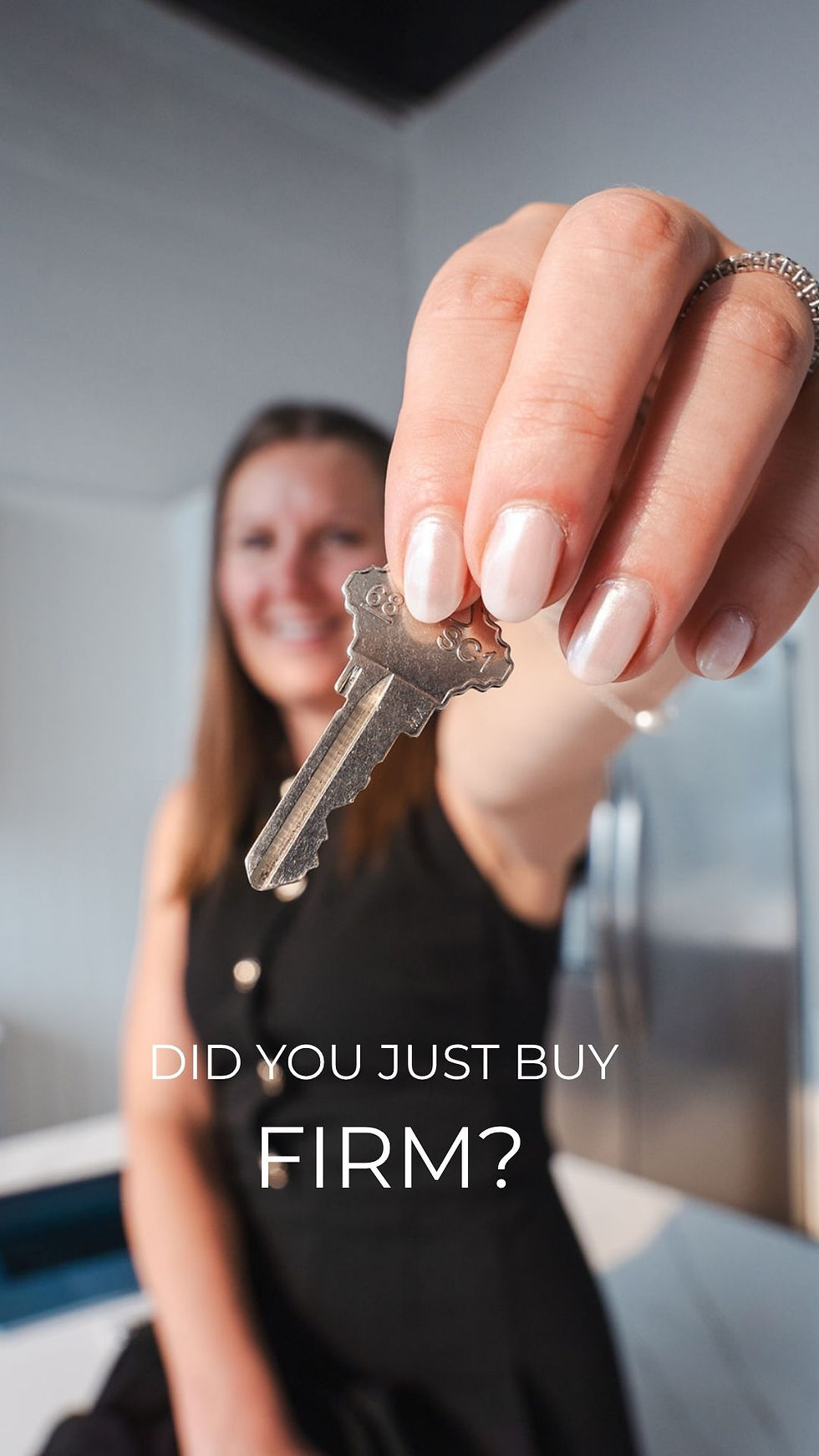Buying a Home in Your 20s: What I Learned and What I’m Glad I Did
- Emily Miszk
- Nov 14, 2024
- 3 min read

Buying a home is one of the most exciting, yet overwhelming, experiences of your life. For many, it’s also one of the most expensive and stressful. When I bought my first home in my 20s, I quickly realized that a mortgage pre-approval is just the beginning of the journey. The real challenge lies in navigating the process, making smart decisions, and preparing for the unexpected.
Looking back, I’m grateful for the steps I took that eased the process and helped me avoid future headaches. Here’s what I learned, and what I’m glad I did when buying my first home in my 20s.

1. Don’t Skip the Cohabitation Agreement
When I bought my home, Josh and I were not married—young and in love, ready to take on the world. It felt a little like the Barenaked Ladies song Lovers in a Dangerous Time, because buying a home with a partner before marriage can be risky if you don’t plan ahead. This is where a cohabitation agreement comes in. I know, it’s probably the least romantic thing you could imagine. I wasn’t thrilled about signing it at first either. After all, why prepare for things going south when you're planning a life together?
But here’s the reality: the best time to plan for the future is when you’re happy and getting along, not when things get complicated. A cohabitation agreement is like an insurance policy—it protects both parties financially in case things don’t work out. I always suggest this to my clients, especially if one person is contributing more financially or receiving a gift from family. In fact, I suggest it to any unmarried couple buying a home together. It’s a simple way to avoid future stress and misunderstandings.
If you're not sure where to start, your lawyer can help you draft one. If you don’t have a lawyer, I highly recommend Alessandra Ocampo at Vantage Law—she’s an expert at making the process smooth and straightforward.
2. Take Advantage of First-Time Homebuyer Accounts
One thing I’m really glad I did was open a First-Time Home Buyer Savings Account. If you’re in your 20s and thinking about buying a home, this is a no-brainer. The First-Time Home Buyer Savings Account is relatively new, but it’s an excellent tool to save for your first home without having to repay the funds, unlike with an RRSP Home Buyers’ Plan. If your employer offers a matching contribution for your RRSP, that’s another great opportunity to build up your savings.
The earlier you start saving, the better. Even small contributions add up over time, and these tax-free or tax-deferred savings options can give you a significant boost toward your down payment.

3. Get Help from Family if You Can
One thing that might surprise you is how common it is for first-time homebuyers to get financial help from family. In fact, about one-third of first-time buyers receive some form of support. Whether it’s a gift toward your down payment or having a parent co-sign your mortgage, family support can make a huge difference.
It’s not always easy to have these conversations, but if your parents or family members are in a position to help, it’s worth asking. Whether they offer a gift, a loan, or even go on the mortgage application with you, this kind of assistance can be invaluable when you’re just starting out. The housing market can be tough, and every bit of support helps.
4. Stay Under Budget and Have a Backup Plan
This is a bonus tip that I can’t stress enough: try to stay under budget and have a backup savings plan. When you buy a home, it’s easy to fall in love with properties that stretch your finances, but you don’t want to be "house-poor." Owning a home comes with ongoing expenses—repairs, maintenance, and unexpected costs that can sneak up on you. Having a financial cushion can be a lifesaver and prevent unnecessary stress.
Personally, I found staying under budget and keeping an emergency fund made the experience of homeownership much more enjoyable. You’ll want to enjoy your home without constantly worrying about how to pay for the next repair or bill.
Final Thoughts
Buying my first home in my 20s was an incredible experience, and it set the foundation for future financial success. If you’re in the market for your first home, my advice is simple: prepare, plan, and don’t hesitate to seek help from professionals.
Need help getting started? Whether you’re looking for advice on financing, need an introduction to a great REALTOR®, lawyer, or financial planner, or simply have questions about the process, I’d love to be part of your home-buying team. Feel free to reach out—I’m here to help!









Comments